Does Italy Have a Death Penalty Currently in 2025?
Does Italy have a death penalty in 2025? This article explains Italy’s legal status, history, and cu...
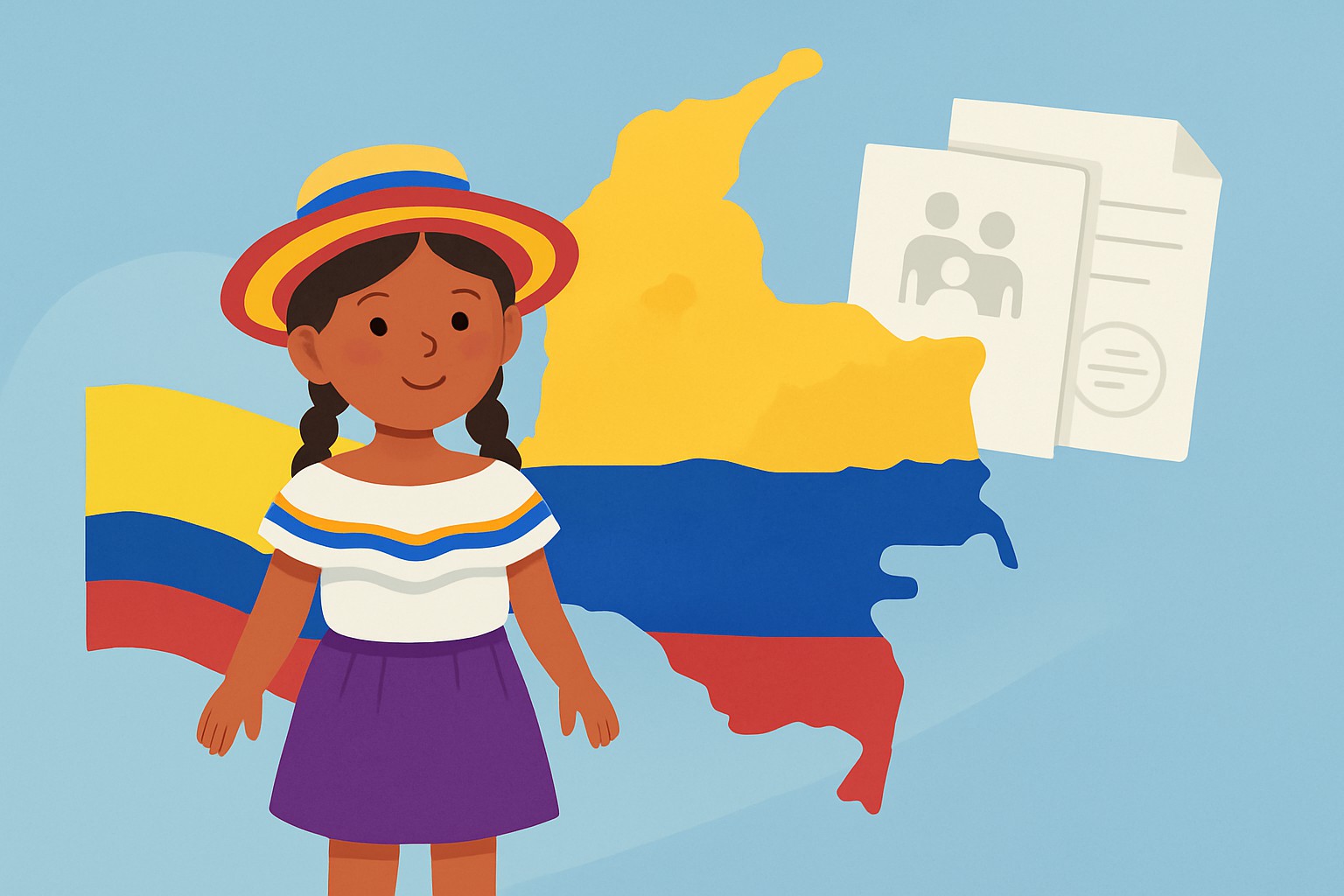
Does Colombia have birthright citizenship? The answer can be a bit of a maze especially since every country seems to play by its own rules. This article dives into whether Colombia hands out citizenship to children born on its turf. It breaks down the legal details, highlights important conditions and exceptions, and spells out what it means for families living in or considering a move to Colombia.
Birthright citizenship means a child automatically acquires citizenship of the country where they are born, regardless of the parents' nationality—similar to receiving immediate membership upon entry. This principle is known as jus soli, a Latin term meaning right of the soil. It contrasts with jus sanguinis, where citizenship is determined by the parents' nationality instead of the place of birth.
Colombia’s citizenship laws mainly take their cues from the 1991 Constitution backed by the Colombian Civil Code and nationality laws. These rules lay out who qualifies as a Colombian citizen whether you’re Colombian by birth, descent or through naturalization. When it comes to handling citizenship paperwork and registrations the Ministry of Foreign Affairs is the go-to authority.
Kids born on Colombian soil typically pick up Colombian citizenship, but it’s not quite the straightforward birthright you might find in other places. Citizenship kicks in automatically if at least one parent is Colombian, or if the little one arrives to foreign parents who happen to be legal residents. There are some exceptions like children of foreign diplomats or those whose parents are just passing through temporarily.
| Child's Category | Citizenship Status in Colombia | Conditions/Notes |
|---|---|---|
| Born to at least one Colombian parent | Regarded as Colombian right from the get-go | This holds true no matter where the little one takes their first breath |
| Born in Colombia to foreign parents | Eligible to become a citizen if the parents have legal residency | You will need to show proof that the parents are legally residing here |
| Born in Colombia to undocumented parents | Citizenship might be on the table if the child would otherwise be stateless | Each case is looked at on its own merits, so there is some wiggle room |
| Born to diplomatic staff in Colombia | Not granted Colombian citizenship | Diplomatic immunity means citizenship isn’t on the cards here |
| Children born abroad to Colombian parents | Can claim citizenship through registration | Just make sure to register at the Colombian consulate abroad to make it official |
Colombia sticks to the principle of jus sanguinis, allowing children born outside its borders to Colombian parents to claim nationality. These kids still need to be officially registered with Colombian consular officials to make their citizenship legit.
Clearing up these myths helps shine a light on Colombia's citizenship rules. For instance, the law spells out pretty clearly that children of diplomats don’t automatically get citizenship just by being born here. Colombian law is generally quite welcoming to dual nationality, without tossing out any penalties.
When a child is born in Colombia parents need to register the birth with the local civil registry to officially confirm citizenship. This process requires a few documents that prove identity, nationality and residency status—nothing too crazy but definitely worth having in order. If the little one arrives outside Colombia but has Colombian parents it’s key to get the birth registered at a Colombian consulate to lock in those citizenship papers.
Colombia’s approach to birthright citizenship carries significant social, political and legal weight. It genuinely impacts immigrant families by shaping their access to education, healthcare and political participation. The country’s careful balance between jus soli and jus sanguinis plays a key role in demographic shifts and fuels debates about who counts as a citizen.
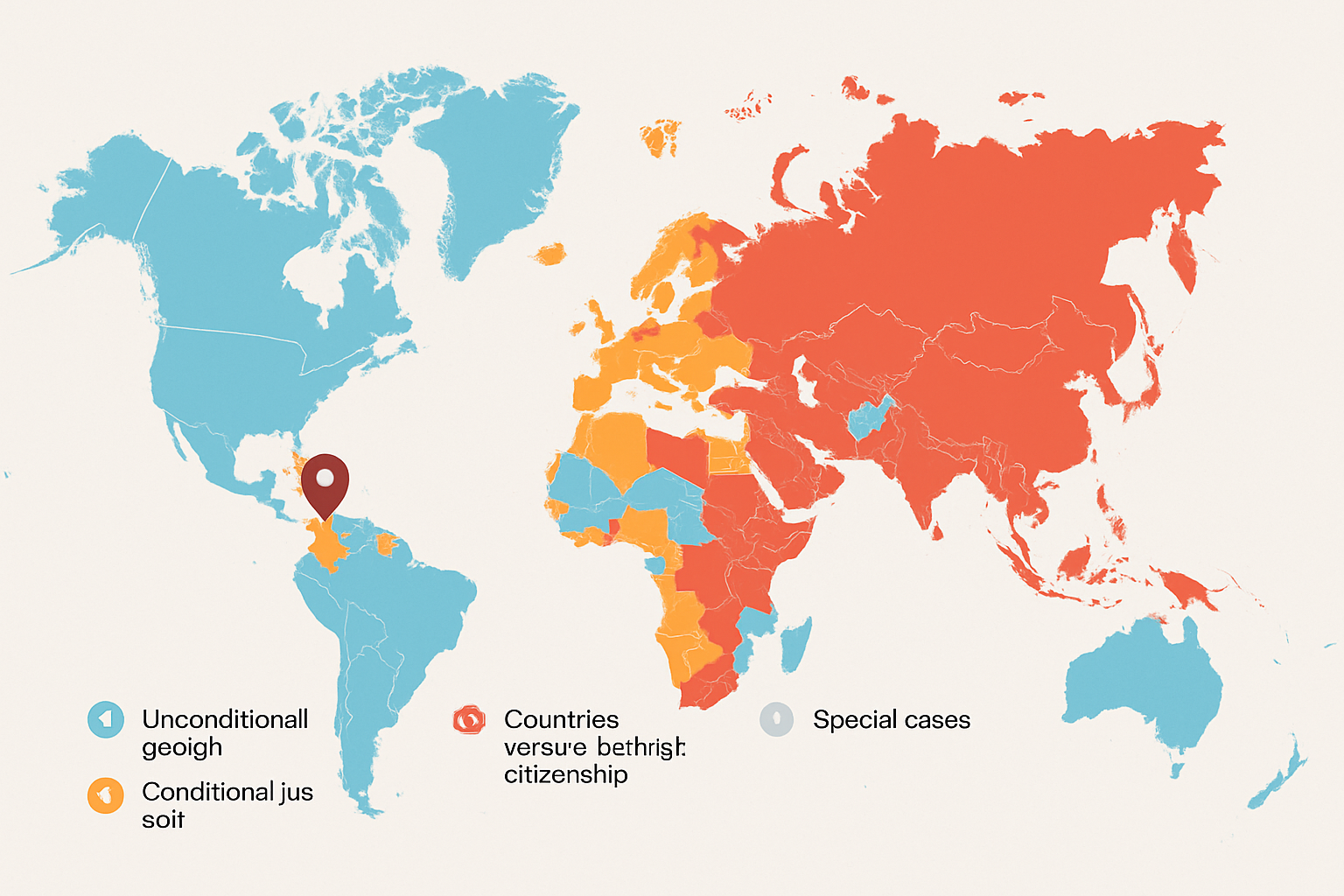
Map indicating global birthright citizenship policies, situating Colombia’s conditional birthright citizenship within the international context.
When asking 'does Colombia have birthright citizenship' and comparing it to other Latin American nations, the policy strikes a fair balance. It mainly follows jus sanguinis—think citizenship through bloodlines—but adds a dash of jus soli under certain conditions. Unlike the United States or Canada where birthright citizenship is practically guaranteed, Colombia is more cautious. At least one parent has to be a citizen or legal resident. In Europe, the focus is also on jus sanguinis, and kids born to foreign parents usually have to go through naturalization.
| Country | Birthright Citizenship Type | Special Conditions | Notes |
|---|---|---|---|
| Colombia | Conditional | At least one parent must be a citizen or legal resident | A neat blend of jus soli and jus sanguinis principles, giving a bit of both worlds |
| United States | Unconditional | Anyone born on U.S. soil automatically becomes a citizen | The classic example of jus soli—almost everyone knows this one |
| Canada | Unconditional | All individuals born in Canada are citizens | Much like the U.S., Canada keeps the door wide open with its jus soli approach |
| Mexico | Unconditional | Citizenship granted to those born on Mexican territory | Embraces jus soli pretty broadly, no fuss no muss |
| Germany | Conditional | Citizenship granted if parents hold legal residency | Mostly jus sanguinis, but with a splash of jus soli here and there |
| Spain | Conditional | Mostly based on jus sanguinis; jus soli applied under certain conditions | If born abroad, a formal registration is required—paperwork lovers, rejoice! |
| Japan | None | Citizenship granted only through descent | Sticks strictly to jus sanguinis rules, keeping things traditional and tight |
26 posts written
Beatrice bridges the gap between human behavior and sustainability through compelling narratives that inspire action.
Read Articles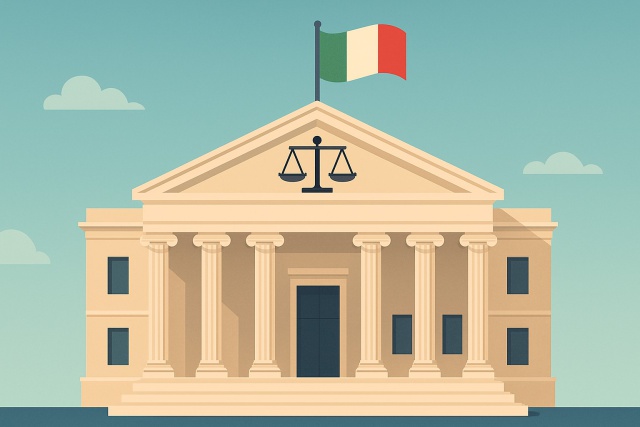
Does Italy have a death penalty in 2025? This article explains Italy’s legal status, history, and cu...
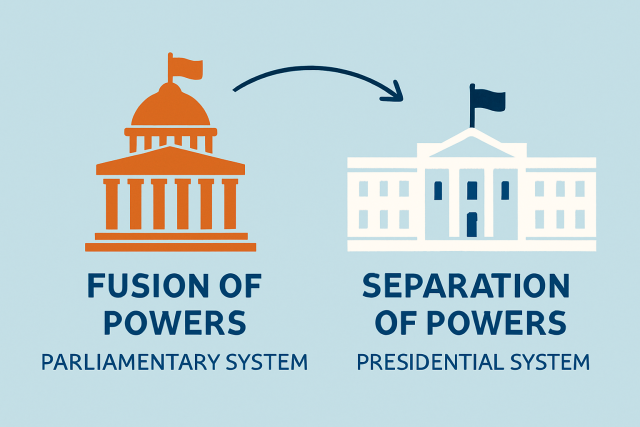
Understand why the fusion of powers differs from separation of powers and how each system shapes gov...
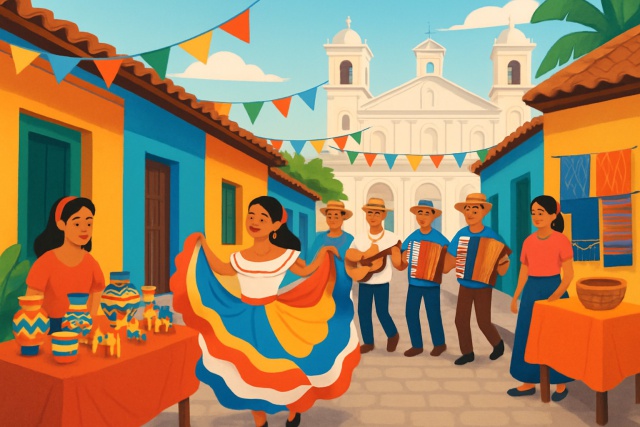
Explore the best vacation spots in El Salvador where rich local culture thrives—from historic towns...

Wondering if Belize City is worth visiting? Explore its rich history, vibrant culture, stunning natu...
27 posts written
25 posts written
24 posts written
